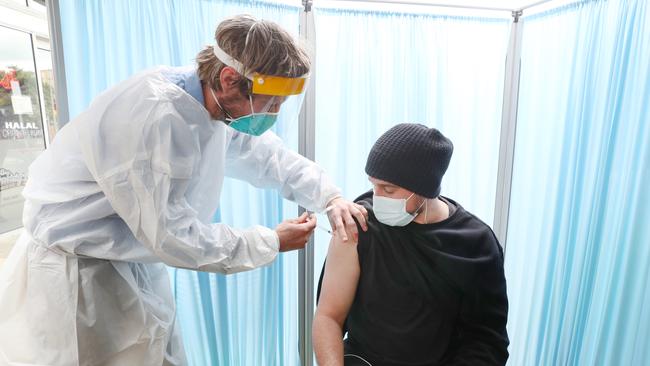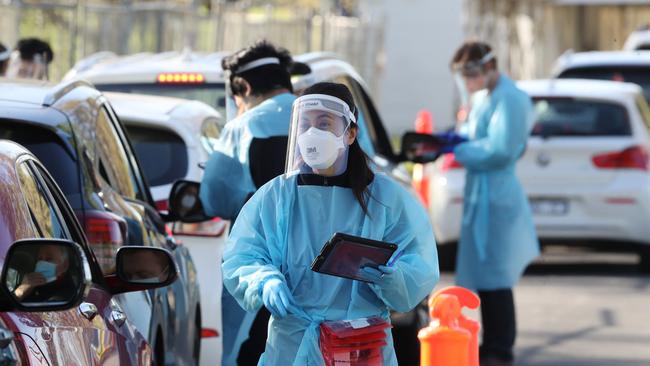Why do new variants of Covid keep popping up?
A new subtype of the Omicron variant has been detected in China. “Another one” do I hear you say? This is why it won’t be the last.
Science
Don't miss out on the headlines from Science. Followed categories will be added to My News.
It is the news we hate to hear: “a new variant of Covid has emerged”.
How many times over the pandemic have you thought the virus might be subsiding, only to hear about this new thing called Delta or Omicron or even Omicron BA.2?
Just in the last week, news broke that a new subtype of Omicron was found near Shanghai in China.
It is the type of news that always comes with many unknowns. Will it have the ability to evade immunity from past infection or vaccine protection? Should we be concerned? And how does it even happen?
How do these new variants and subvariants emerge?
The simple answer is viruses change constantly and sometimes mutations result in a new variant.
When asked about the detection of a variant that was a hybrid of Delta and Omicron strains last month, Dr Maria Van Kerkhove, the World Health Organisation’s covid-19 technical lead, said it was expected.
“Unfortunately, we do expect to see recombinants because this is what viruses do. They change over time,” she said.

As the US Centers for Disease Control and Prevention puts it, some variants emerge and disappear while others persist, but new variants will continue to emerge.
Sometimes new variants spread more easily and quickly, making the number of cases increase.
And even if a variant causes less severe disease, an increase in the number of cases could cause an increase in hospitalisations, put more strain on healthcare resources and potentially lead to more deaths.
Covid-19 is caused by a coronavirus named SARS-CoV-2, which is an RNA virus.
“All RNA viruses mutate over time, some more than others,” Infectious diseases expert Robert Bollinger explained in a recent Johns Hopkins Medicine article.
“For example, flu viruses change often, which is why doctors recommend that you get a new flu vaccine every year.”

Infectious diseases expert Sanjaya Senanayake said the fact the new subvariant in China was detected early was a promising sign.
“In a sense, it is good that it’s been identified early so that we can learn more about it,” he said, speaking to Sunrise on Tuesday.
“We know from past experience with Covid that we’re getting new variants and new mutations all the time and a lot of them turn into nothing, so hopefully that will be the case with this one.
“And right now on the Covid landscape there are lots of sub variants of Omicron. Not all of them are going to cause problems, but it’s good to know we can watch and learn about them.”
Associate Professor Senanayake said we were “lucky” Omicron turned out to be more infectious but generally did not cause more severe disease.

Covid variants are categorised in different ways by the World Health Organisation and other health authorities.
Therefore, there are many you likely haven’t even heard of.
There are variants under monitoring and there are variants of interest.
Then there are variants of concern, which currently include Delta and Omicron.
In the US, the CDC also recognises variants of high consequence, which current vaccines do not offer protection. There are currently no variants of high consequence.

There are different theories as to how Omicron emerged.
In a piece for The Conversation in November, scientists said one theory is that people with highly compromised immune systems, and who experience prolonged active infection because they cannot clear the virus, may be the source of new viral variants.
“The assumption is that some degree of “immune pressure” (which means an immune response which is not strong enough to eliminate the virus yet exerts some degree of selective pressure which ‘forces’ the virus to evolve) creates the conditions for new variants to emerge,” they said.
Another theory is that the virus could have been passed onto an animal like a rat through sewerage and then evolved into Omicron before being passed back to a human.
A large population of animals with infections lasting longer than in humans could give SARS-CoV-2 room to explore a wide diversity of mutations and “build up a large ghost population of viruses that no one knows about”, Darren Martin, a computational biologist at the University of Cape Town, South Africa, told Nature.
Originally published as Why do new variants of Covid keep popping up?




